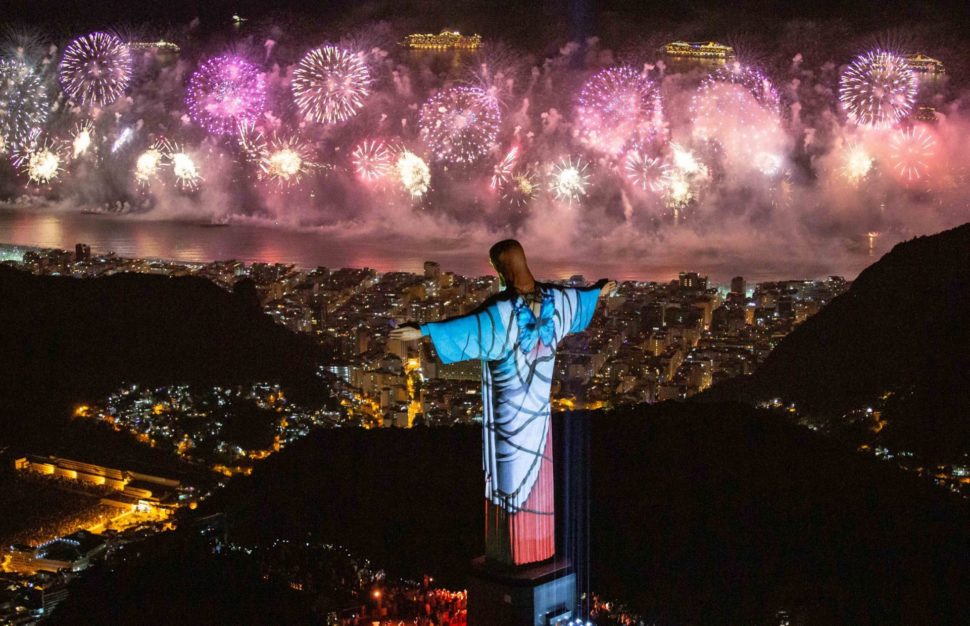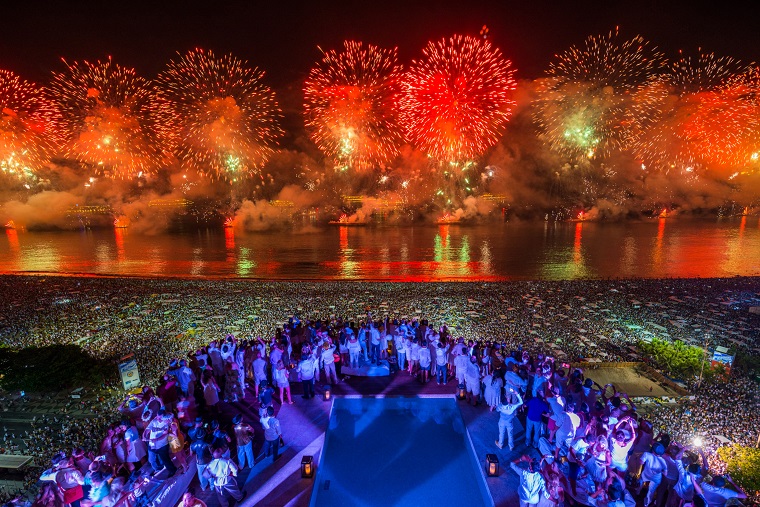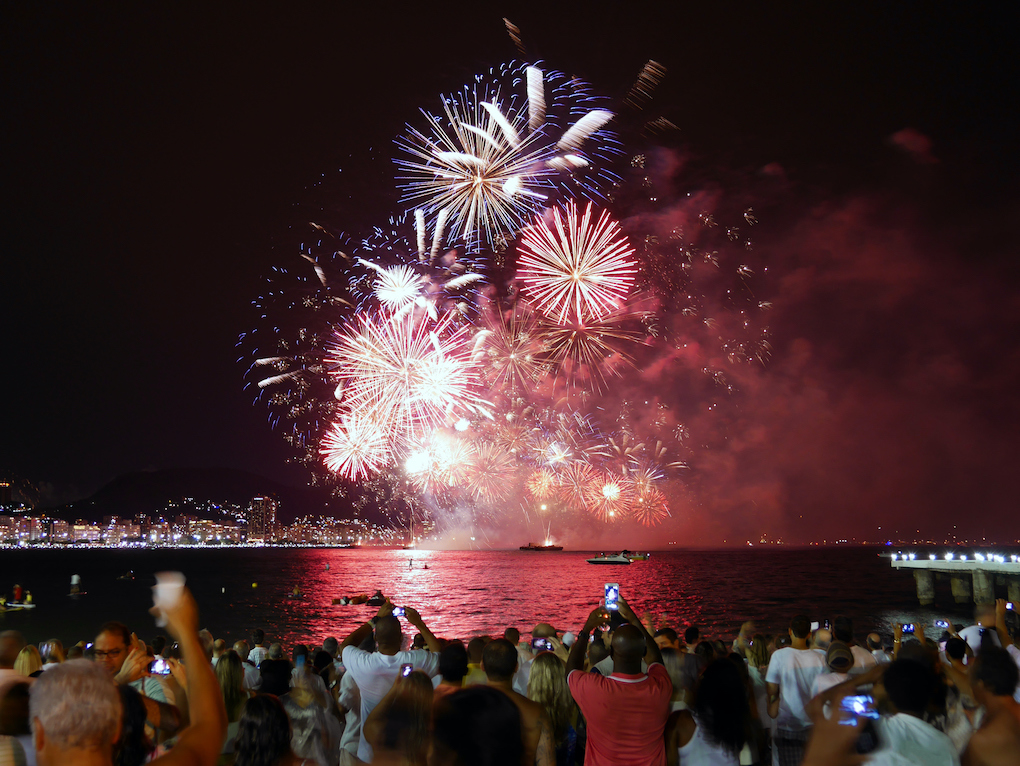After being postponed because of the Covid-19 pandemic in Brazil, Rio de Janeiro’s New Year’s Eve celebration — the largest in the world— is back.
The announcement was made by Rio’s Mayor Eduardo Paes on July 30th during an interview on local broadcast TV. Although the COVID-19 pandemic is not yet under control, Paes said he is confident that Rio’s population will be fully vaccinated by October 2021.
“I’m very sure it is going to happen,” he said.

According to the mayor, Rio City Hall has already started to plan the party in Copacabana Beach and other areas of Rio. Copacabana is predicted to host three locations along the beach for the New Year’s Eve celebration, with live concerts and the traditional fireworks show, a tradition that began in the seventies.
The fireworks show lasts 15 minutes, with different themes and classical music played during the event.

Despite the optimism, Rio’s Health department warns that the preparation for the party does not necessarily guarantee the festivities will take place on December 31st.
“The New Year’s Eve celebrations are conditioned to the epidemiological scenario of the pandemic in the capital,” addressed Rio’s Health department.
Paes added: “If Rio’s Health department comes to the conclusion that it is not possible to have the event because of the growing numbers of Delta variant, we will immediately cancel it. However, the advancement of the vaccine rollout, and the decrease of hospitalizations and deaths going down show that we will be ready to have the New Year’s Eve celebration. If everything goes in the right direction, Rio will have the best New Year’s Eve party ever.”
The mayor said he is counting the days to announce the sanitary crisis is under control.
“I can’t wait to say, ‘hey look, this pandemic tragedy is finished. We are going to get back to normality.”
Rio New Year’s Eve celebration is the city’s second-biggest party after Carnival, which was also confirmed to resume in 2022.
As one of the most sought-after New Year’s destinations in the world, the Copacabana fireworks display attracted around three million people from all over the world in 2019, according to official data. In 2020, however, the idea was to have people following the online celebrations from their own homes through virtual broadcasts.





